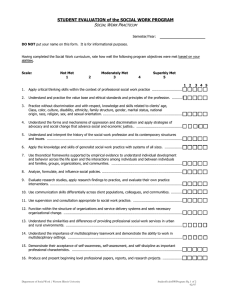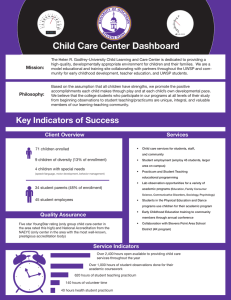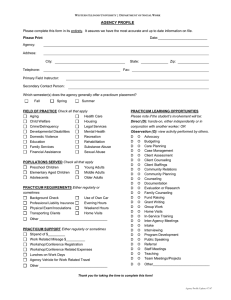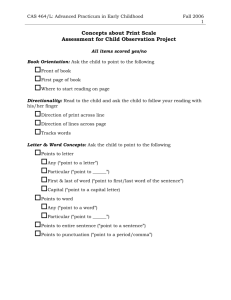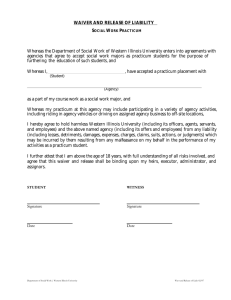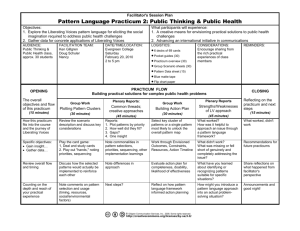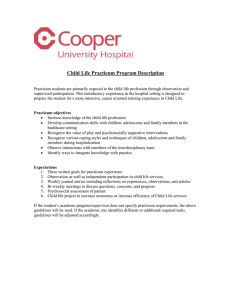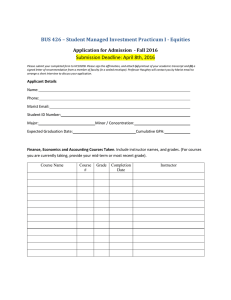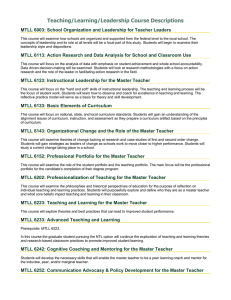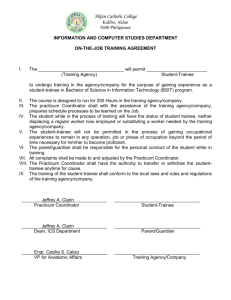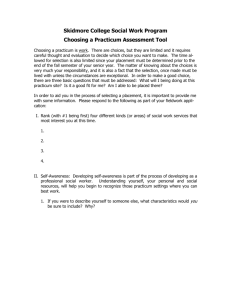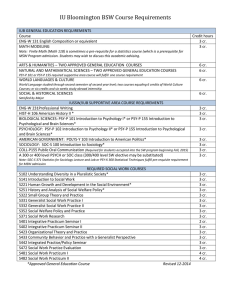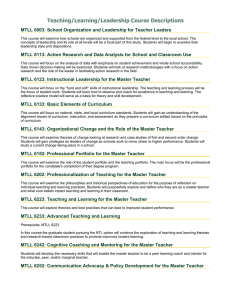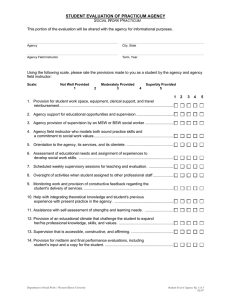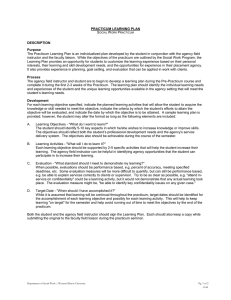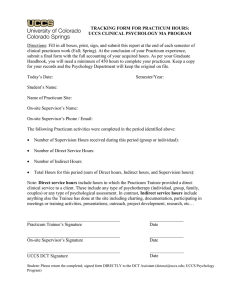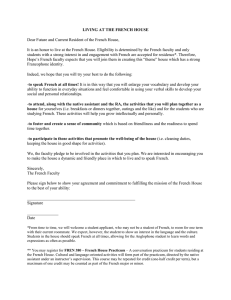Hosting and Assessing Practicum Students
advertisement
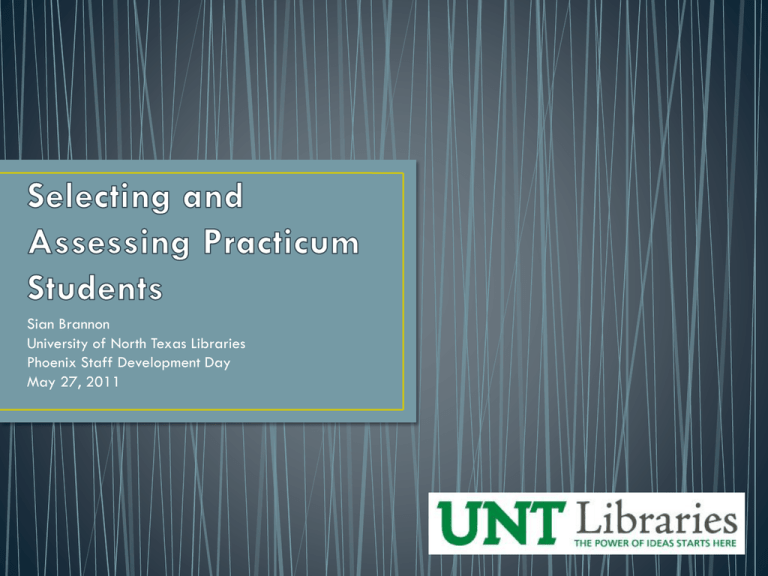
Sian Brannon University of North Texas Libraries Phoenix Staff Development Day May 27, 2011 •Experience as a practicum student •Interest in fieldwork •Current dissertation studies • Theory vs. practice • History • Two schools in town • Three schools in state • 50+ schools in country • Complaints of students • These are potential employees – treat them as such •YOU DON’T HAVE TO TAKE THEM – ALISE • SLIS 5090. Practicum and Field Study. 3 hours. Supervised practice work and field study (120 clock hours minimum) in a cooperating library, learning resources center or information agency, plus seminar conferences and summary report. For students without prior field experience. Prerequisite(s): admission to candidacy, application for practicum early in prior terms/semester and appropriate administration course or type-of-system course (may be taken concurrently). Not counted for degree credit. Pass/no pass only. • LS 5843. Practicum. Professionally supervised work experience in approved school, public, academic, or special libraries. One hundred and twenty hours of work experience; students seeking school library certification admitted to MLS program on or after January 1, 2009, complete one-hundred and sixty hours of work experience. Credit: Three hours. • • • • What are they? What does the school ask for? What do you want? Prytherch’s goals for practicums: • to tie theory to practice, especially in management and communication • to spread a student’s experience beyond a familiar type of library, extending their career options • to develop students’ own feelings for the profession • to make contact with members of the profession • to permit school involvement in examining student attitude and motivation • to augment the school’s influence on the profession • to promote the concept of ‘learning through doing’ • Why use them? • Parts of a learning objective • (Stem) • Verb • Predicate • (Criterion) • Verbs • Weak: understand, appreciate, grasp, enjoy, believe • Stronger: solve, construct, write, identify, compare • Students will demonstrate the ability to recognize and analyze ethical issues and dilemmas in library and information settings and propose reasoned courses of action (University of Arizona) • Understand and effectively apply principles of representation and systems of organization to provide access to resources in a variety of library and information environments (Indiana University) • Discuss the importance of the historical, social, cultural, economic, political, and policy roles and issues related to information businesses and organizations through history to the present (University of Denver) • Upon completion of the practicum, the student will be able to perform basic copy cataloging with few errors • Student will identify and list basic selection aids for collection development • Student will create a visual representation of information retrieval systems • Student will recognize the components of metadata records through application of the Dublin Core schema • Why use rubrics? • Feedback • Consistency • Reverse feedback • How to make a rubric • • • • Reflect – what do you want from students – GOALS/OBJECTIVES List – think of assignments related to learning objectives Group – organize objectives and assignments Analyze – define what criteria is reflected by performance •BAD •BETTER


